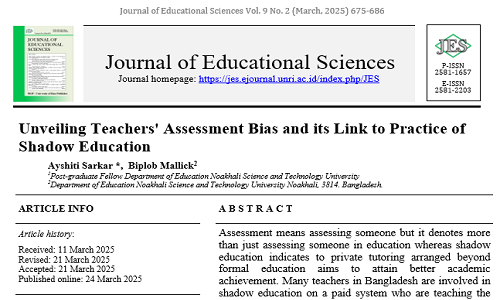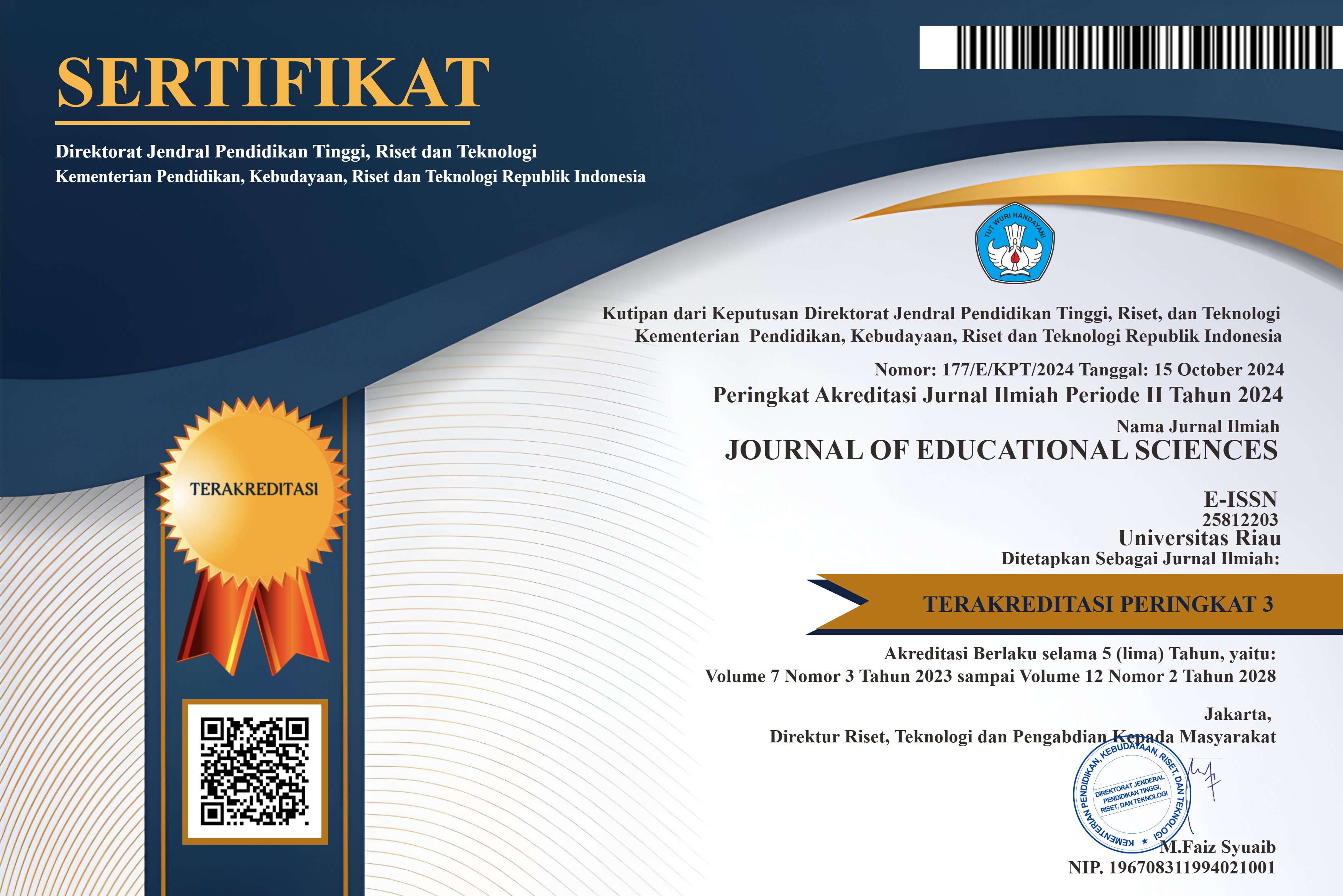Unveiling Teachers' Assessment Bias and its Link to Practice of Shadow Education
DOI:
https://doi.org/10.31258/jes.9.2.p.675-686Keywords:
Assessment, Assessment Bias, Private Tutoring, Secondary School, Shadow EducationAbstract
Assessment means assessing someone but it denotes more than just assessing someone in education whereas shadow education indicates to private tutoring arranged beyond formal education aims to attain better academic achievement. Many teachers in Bangladesh are involved in shadow education on a paid system who are teaching the same students in school. This qualitative study aims to explore whether teachers' assessment practice is biased and how this bias is linked to their involvement in private tutoring. Different types of assessment practice of the teachers are as consequences of shadow education practice such as bias in summative assessment, bias in formative assessment, intentional bias, and unintentional bias. Among these four, bias in summative assessment, bias in formative assessment and intentional bias are directly linked with the shadow education practice. The teachers are practicing 'favoritism' to reward the students who take private tuition from them and they are practicing 'unfair penalization' to punish the students who do not take tuition from them. However, unintentional bias cannot be linked with the shadow education practice of the teachers. Therefore, the teachers should practice fair assessment practice to promote the learning of the students learning even though they are involved in shadow education practice.
Downloads

Downloads
Published
Issue
Section
License
Copyright (c) 2025 Biplob Mallick, Ayshiti Sarkar (Author)

This work is licensed under a Creative Commons Attribution-NonCommercial-ShareAlike 4.0 International License.












